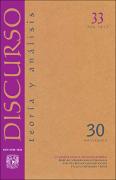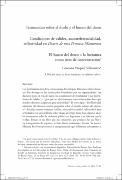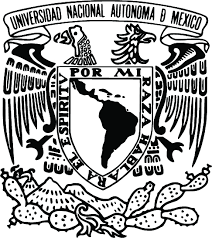Please use this identifier to cite or link to this item:
https://ru.iis.sociales.unam.mx/handle/IIS/5640| Title: | Testimonios sobre el duelo y el hueco del deseo: condiciones de validez, autorreferencialidad, reflexividad en Diario de una Princesa Montonera: el hueco del deseo = la literatura como sitio de concentración |
| Authors: | Vázquez Villanueva, Graciana |
| Keywords: | Autorreferencialidad Condiciones de validez Violencia -- Aspectos politicos Violencia politica Political violence Self-referentiality Validity conditions |
| Publisher: | Universidad Nacional Autónoma de México: Instituto de Investigaciones Sociales; Instituto de Investigaciones Filológicas; Facultad de Filosofía y Letras. |
| Series/Report no.: | Discurso, teoría y análisis;Número 33 |
| Issue Date: | 2013 |
| Abstract: | Leo los fundamentos de la convocatoria del coloquio Discursos sobre Discursos. Me detengo en dos enunciados formulados por sus organizadores: “un discurso pone en tela de juicio sus condiciones de posibilidad y sus pretensiones de validez” y “¿por qué ser efectivamente autorreferenciales hace que muchos discursos adquieran gran notoriedad?” El texto sigue: “la reflexividad inherente del discurso suscita preguntas sobre el estudio mismo del discurso”. Focalizo ciertos términos: validez, autorreferencialidad, reflexividad, para articularlos con un problema sobre el que investigo desde hace algunos años: los testimonios sobre la violencia política en Argentina y su relación con la verdad. Pienso en un libro que me conmovió, que primero fue un blog y, en transposición de soportes, se hizo diario, testimonio, ficción. Su autora, Mariana Eva Perez pertenece a una generación que reflexiona críticamente a través del arte sobre la represión para llevar al límite el agujero de la dictadura y armar una narrativa de la catástrofe que permita la discusión. Su texto busca, a través del humor, los tres temas del coloquio. Primero, las condiciones de validez de su discurso (¿hay legitimación posible?). Luego la autorreferencialidad, para la que sólo es posible la pluralidad de discursos, de registros y un nuevo léxico. Esta autorreferencialidad se extiende, además, al cuestionamiento de la identidad y a la creatividad para tratar temas que para otros parecen estar saldados. Finalmente, la reflexividad, centrada en el acontecimiento traumático y en el propio discurso: llevar el testimonio al límite, romperlo, puesto que su “yo” muestra agobio por tener que vivir en el ejercicio del recuerdo constante. Pareciera que, como en La memoria saturada de Régine Robin, en el Diario de una Princesa Montonera el pasado se bate a duelo. Abstract: Having read the call for papers for the Discourse on Discourse Forum, I want to dwell upon two phrases conveyed by the organizers: "Any discourse puts both its own existential conditions and pretentions to validity at stake" and "Why is it that self-reference makes certain discourses so notorious?" This convocation goes on to say: “Discourse-inherent self-reference raises questions on the study of discourse itself.” I will focus on certain terms: validity, self-reference, and reflexivity to articulate these problems within the subject matter which I have been researching for some years, i.e., testimonies on political violence in Argentina as related to truth. I think a book that moved me, which was first a blog and in transposition of standpoints, became a diary, testimony, and fiction. Author, Mariana Eva Perez belongs to one generation which, through art, reflects critically on repression in order to take to the limit the gap created by the dictatorship and thus put together a narrative of the catastrophe which might trigger debate. Her text searches for the three themes of the Colloquium, through humor. First, the conditions of the validity of related discourse (Is there any possible legitimacy?) Then self-reference, only possible through the plurality of voices, registers and a new lexicon. This examination of self-reference also extends to the questioning of identity and creativity to address issues that others consider already resolved. Finally, focusing on the traumatic event and discourse reflexivity: taking testimony to the limit, and surpassing it since her own self concept had been overwhelmed by having to live continually exercising this memory. It seems that, as in The saturated memory of Régine Robin, in the Diario de una Princesa montonera the past seems to be fighting a duel. |
| URI: | https://ru.iis.sociales.unam.mx/handle/IIS/5640 |
| Type: | PeerReviewed Artículo |
| ISSN: | 0188-1825 |
| Rights: | https://creativecommons.org/licenses/by-nc-sa/4.0 |
| Appears in Collections: | Discurso, Teoría y Análisis |
Files in This Item:
| File | Description | Size | Format | |
|---|---|---|---|---|
| Discurso_33.png | Portada del número | 497.38 kB | image/png |  View/Open |
| 03_vazquez.pdf | Texto completo | 513.48 kB | Adobe PDF |  View/Open |
Items in DSpace are protected by copyright, with all rights reserved, unless otherwise indicated.
